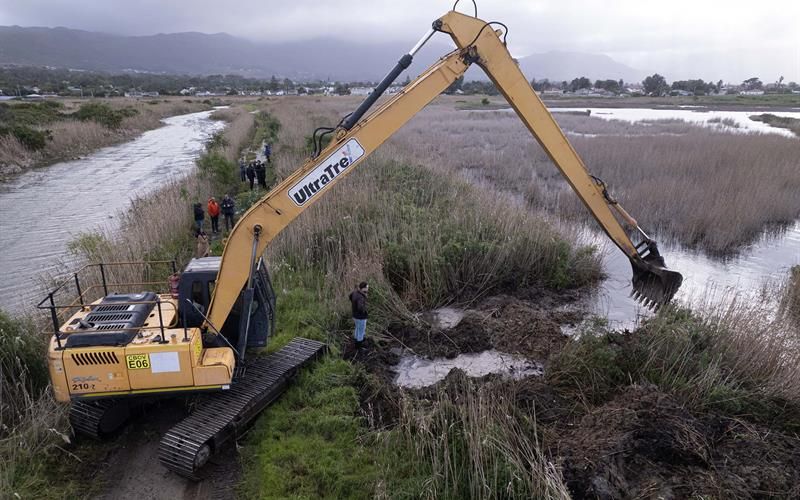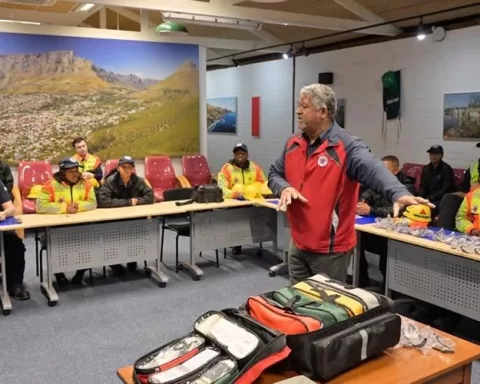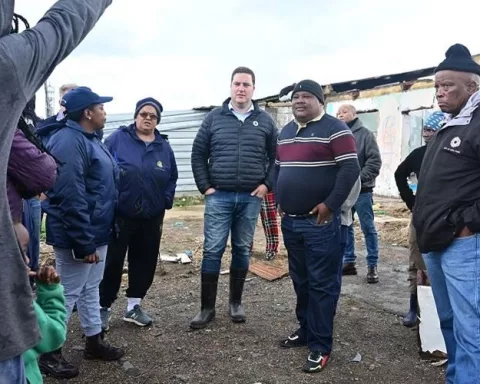As Cape Town experiences a series of cold fronts and heavy rainfall, the city’s dedicated teams are working ceaselessly to manage the resulting localized flooding and other severe weather effects. Cape Town Mayor Geordin Hill-Lewis is personally overseeing the efforts made by these teams, ensuring rapid action is taken to mitigate the impacts affecting different parts of the city.
Overflowing Rivers and Their Consequences
In the aftermath of these cold fronts, numerous rivers in Cape Town have flooded, including the Eerste River/Kuils River, Mosselbank River, and Keyser River, leading to far-reaching consequences. The overflows triggered mudslides in the Oudeskip area near Hangberg in Hout Bay, affecting parts of Zandvlei and Macassar as well as Klipheuwel and Philadelphia.
Coordinated Efforts to Address Risks
To address these issues, the Disaster Risk Management Centre in Goodwood is coordinating efforts across multiple locations. For example, teams are working tirelessly to excavate the Keyser River near Tokai by removing silt and vegetation, diverting water within the catchment to minimize flooding that has affected local businesses, and Melomed Hospital. Officials in Heideveld have also begun a restoration process to clear suburban flooding in the area.
Winter Preparedness Efforts
These efforts are part of the city’s ongoing Winter Preparedness program, which has been in effect for several months. The program includes several initiatives, such as:
- Proactively jetting over 200km of sewers to remove sand and foreign object build-ups, reducing the risk of overflowing.
- Continuously mitigating flooding risks by clearing stormwater drains, ponds, canals, and gullies in flood-prone areas.
- Implementing preventative measures in areas with high informal structure density, with Disaster Risk Management teams conducting assessments and issuing warnings regarding flooding risks.
- Visiting 38 high-risk areas to distribute information pamphlets, use loud-hailers, and erect signage indicating likely flood areas.
- Expanding bed capacities at homeless shelters and City-run Safe Spaces to accommodate more people off the streets.
- Mitigating high stages of load-shedding through business continuity preparations such as fuel storage, generators, UPS systems, and communications and IS&T network readiness. By June’s end, 118 critical sewer pump stations will have generators fitted, with a further R46m budgeted for more installations in 2023/24.
- Preventing electricity outages by trimming trees on public property and encouraging property owners to seek professional assistance in safely trimming trees on their property ahead of winter storms.
A Role Model for Other Cities
The combined efforts illustrate Cape Town’s unwavering commitment to combatting weather-related impacts, prioritizing the safety and well-being of its citizens. The city’s proactive and comprehensive approach to handling severe weather conditions serves as an exemplary model for other cities facing similar challenges.












